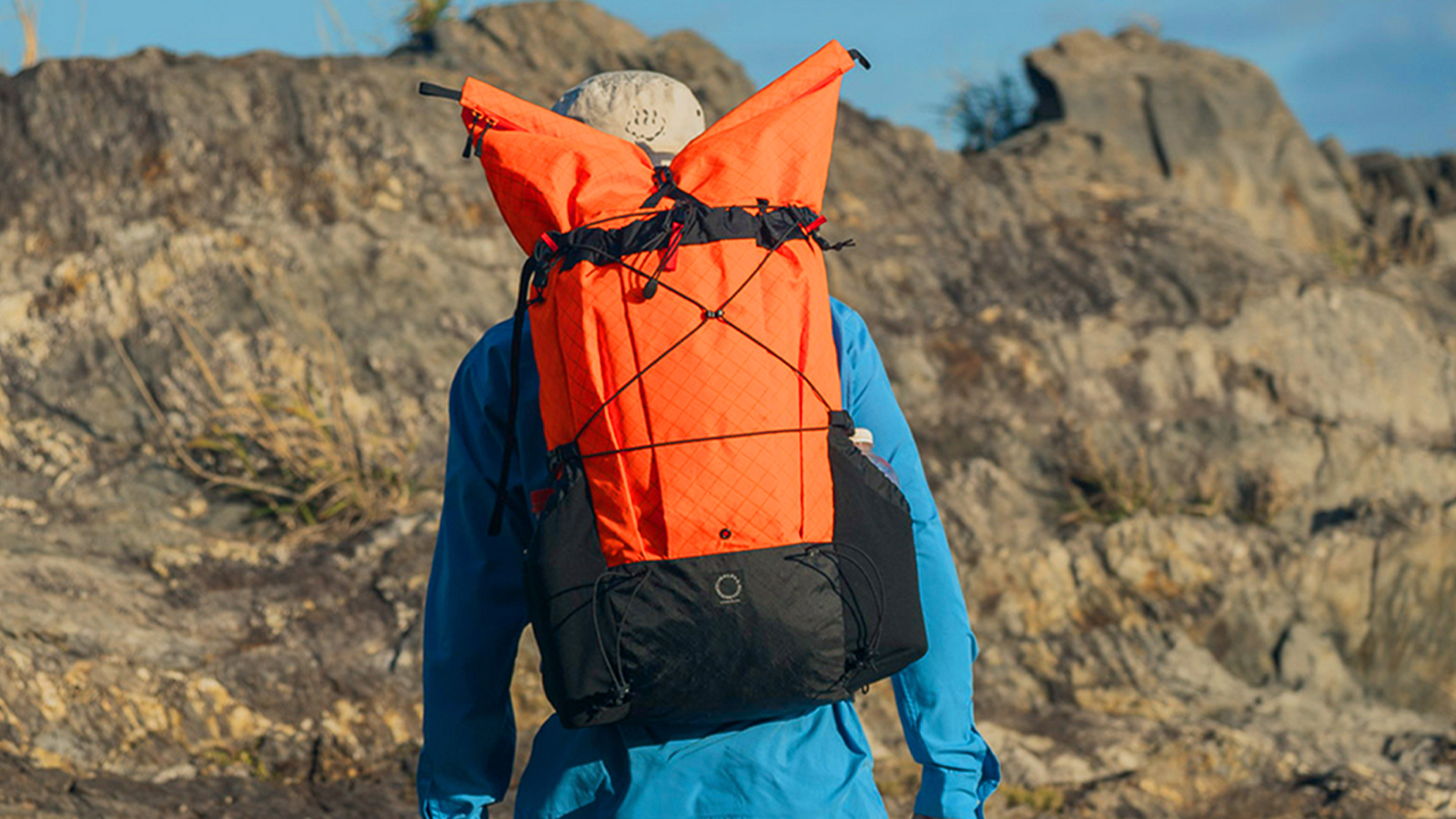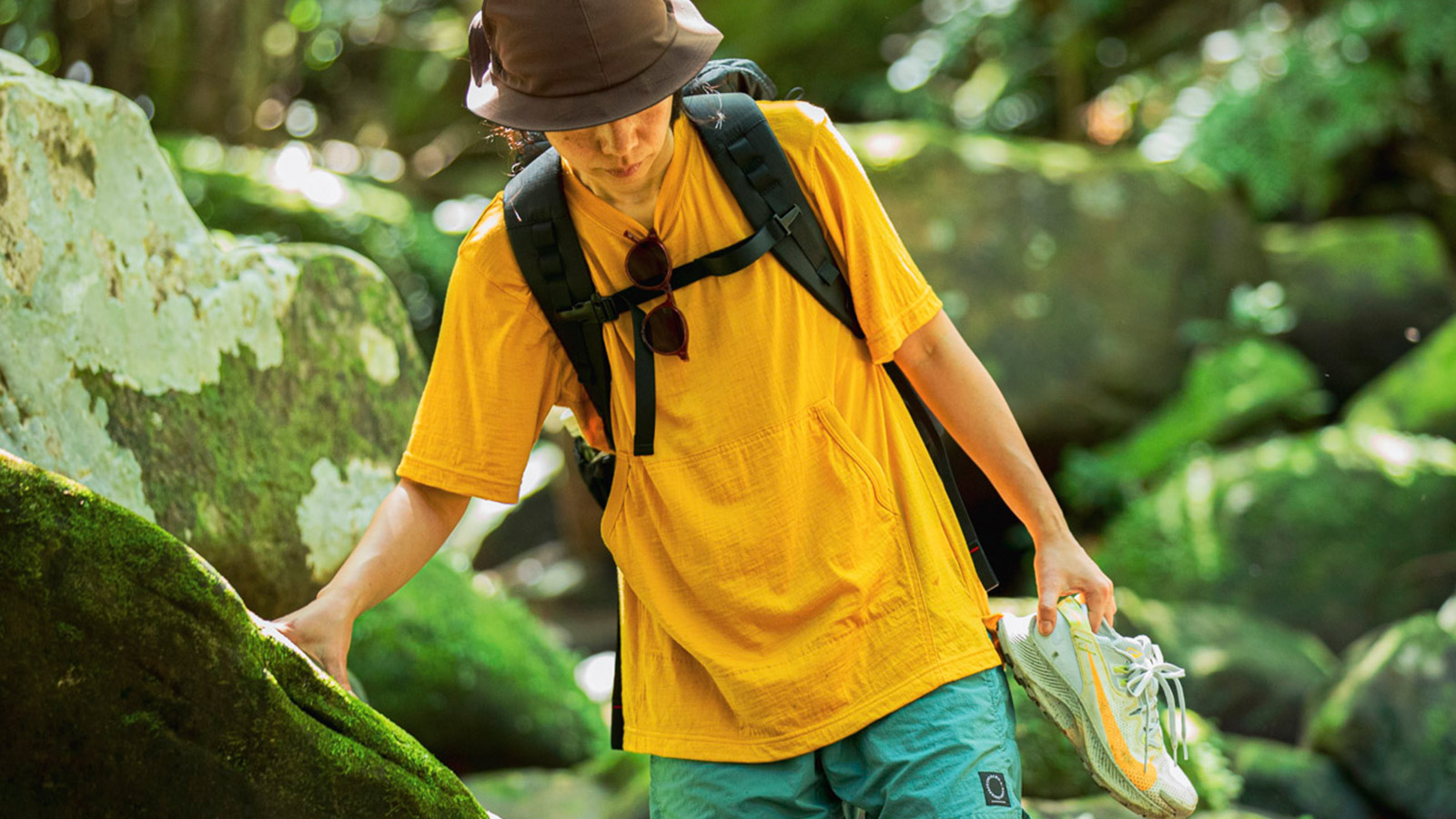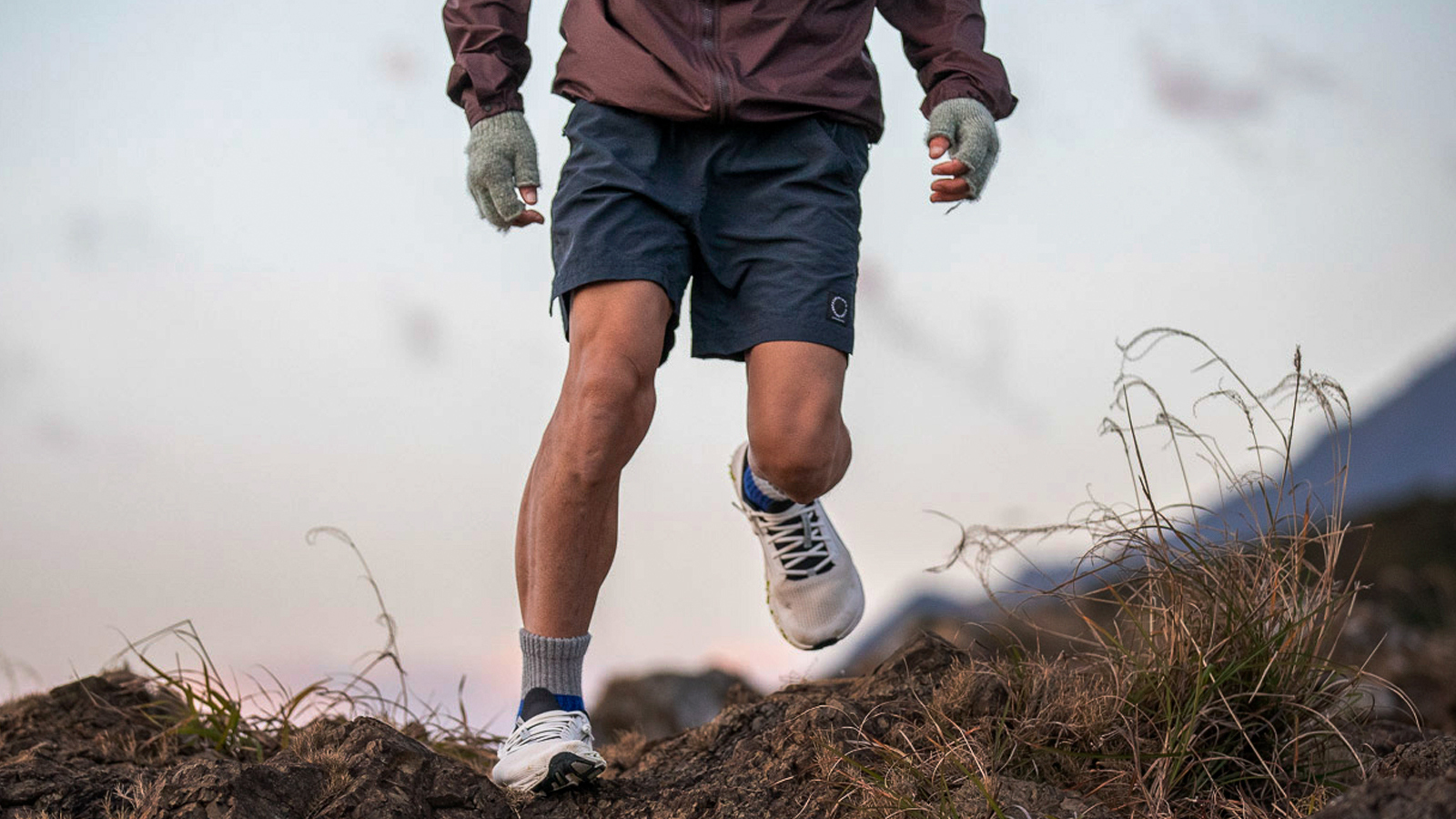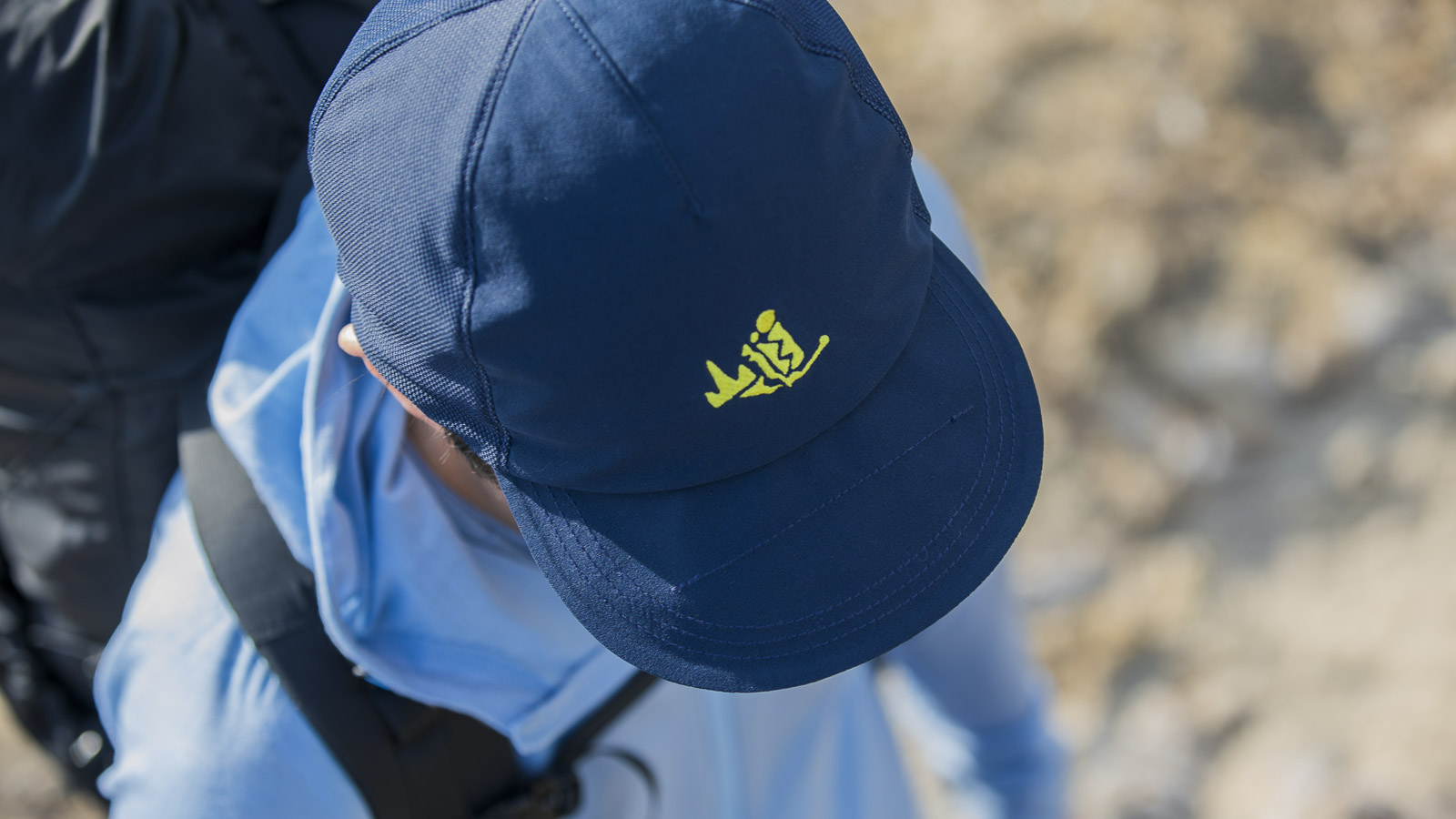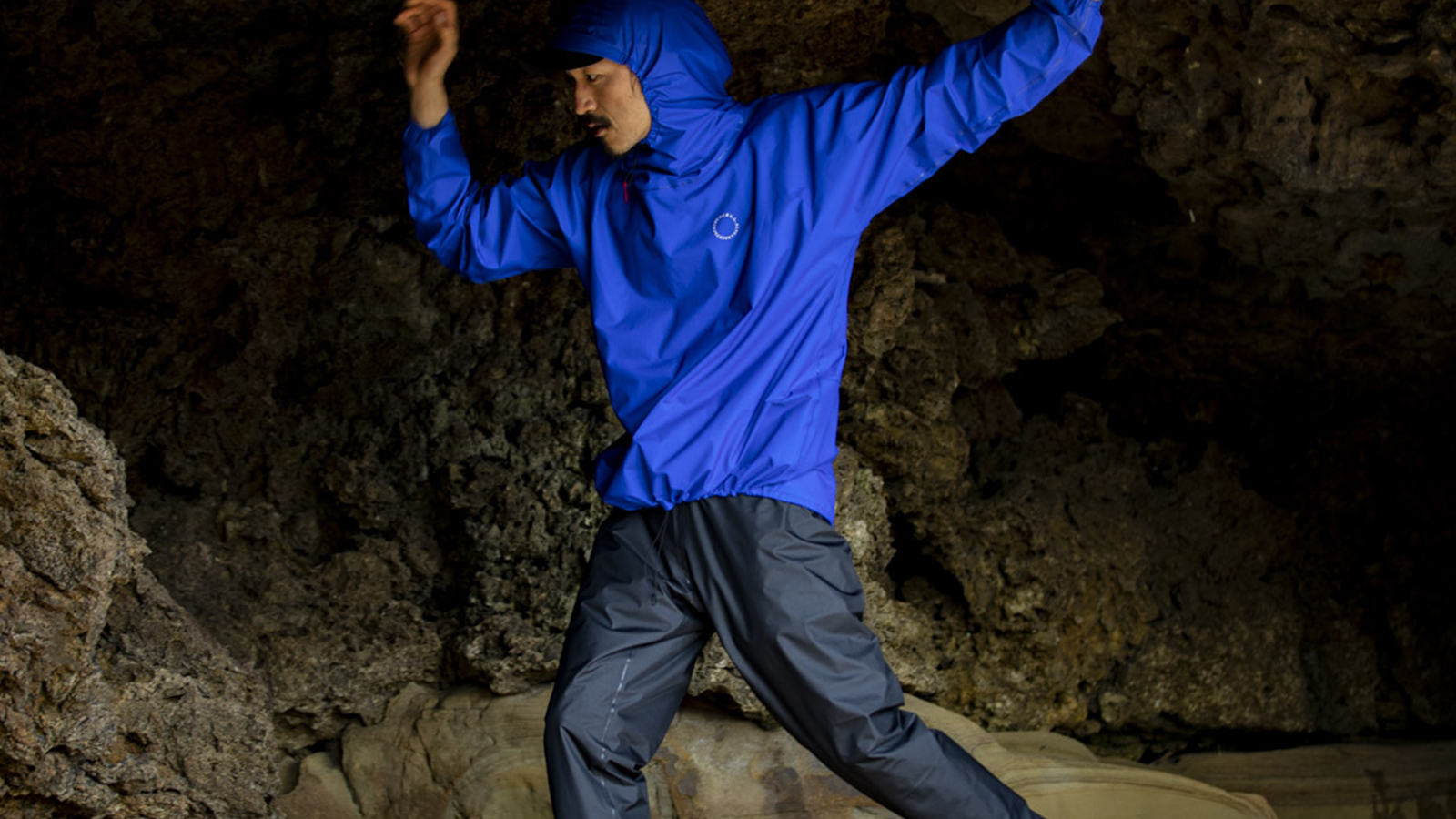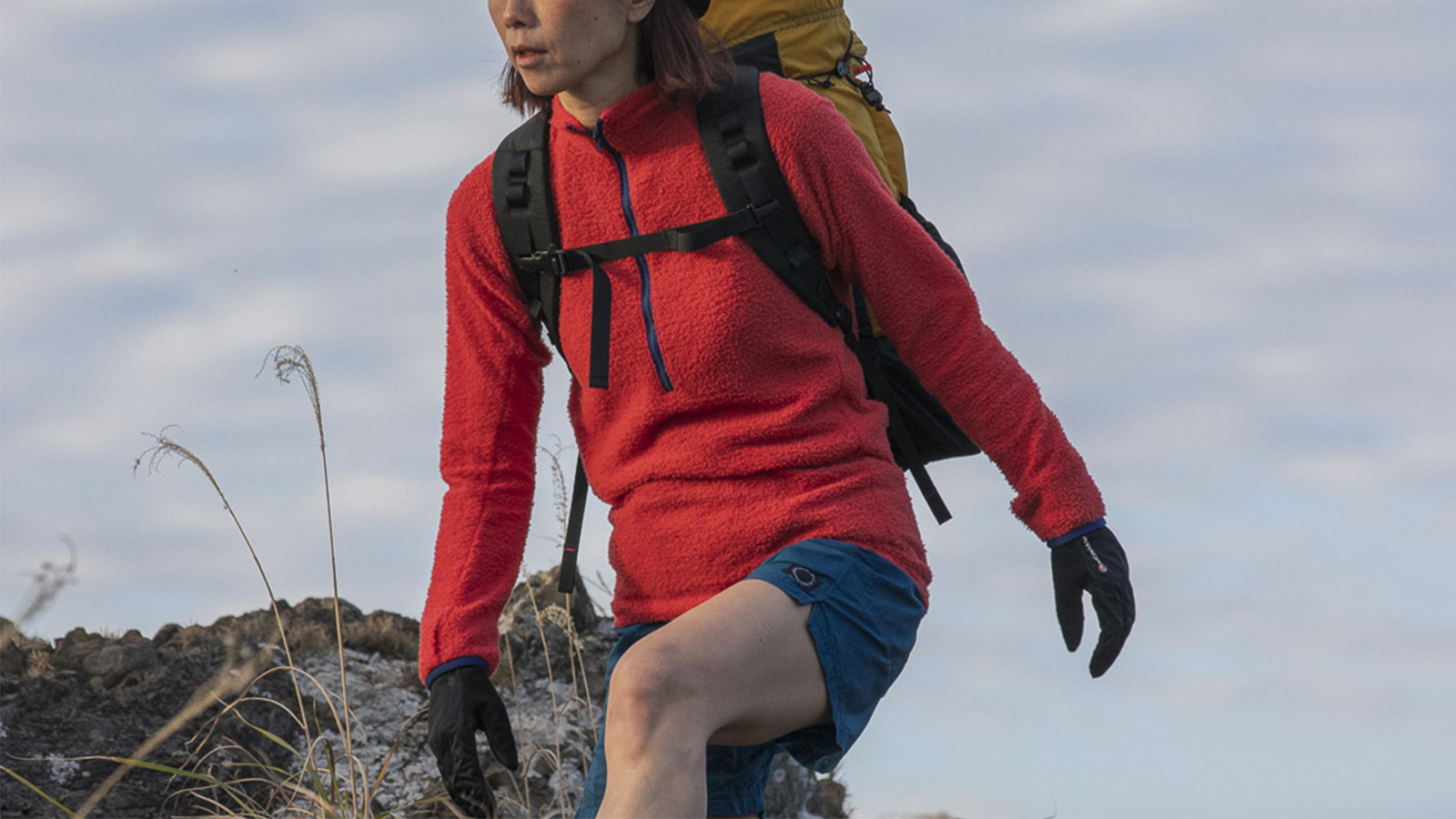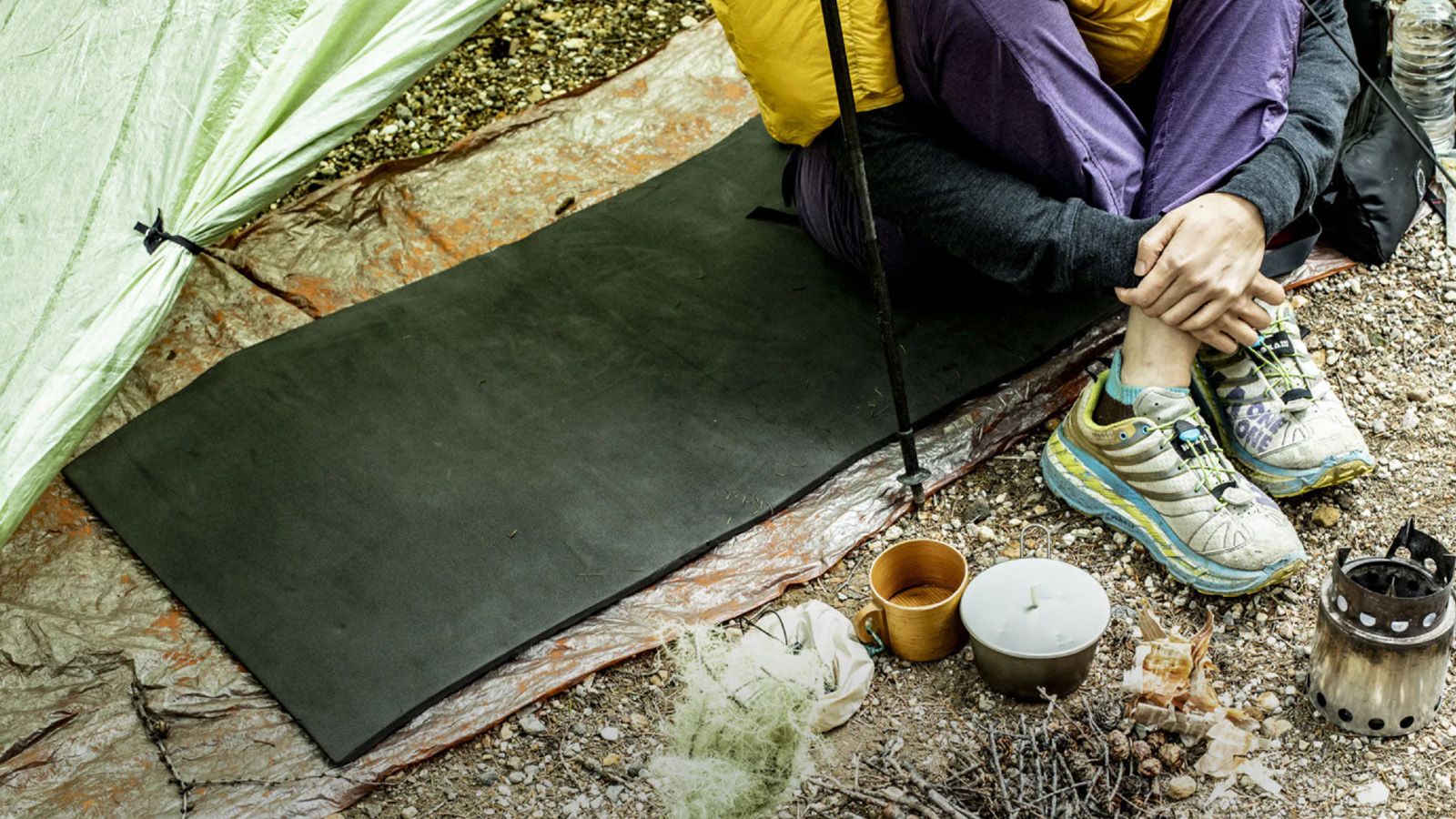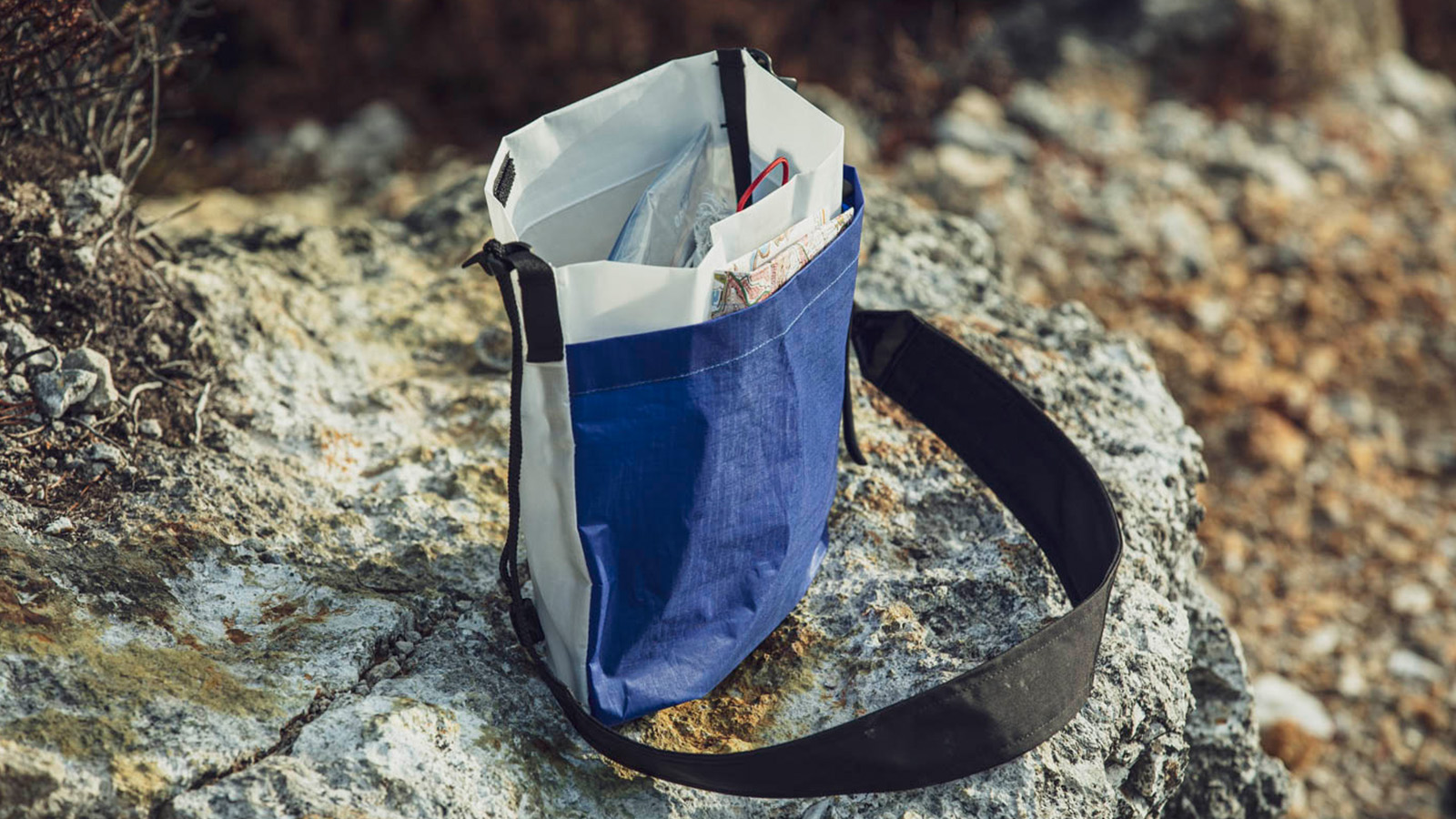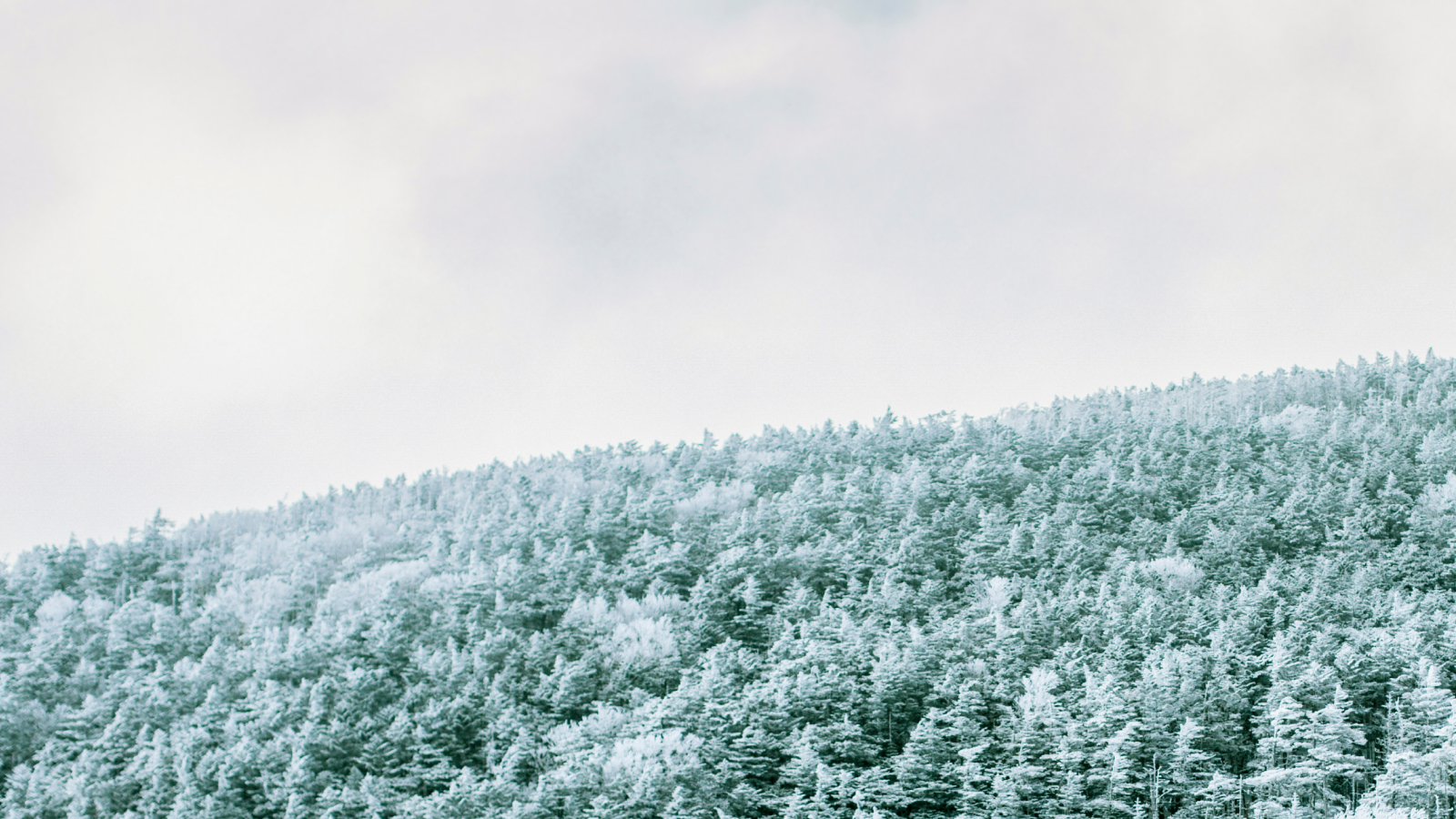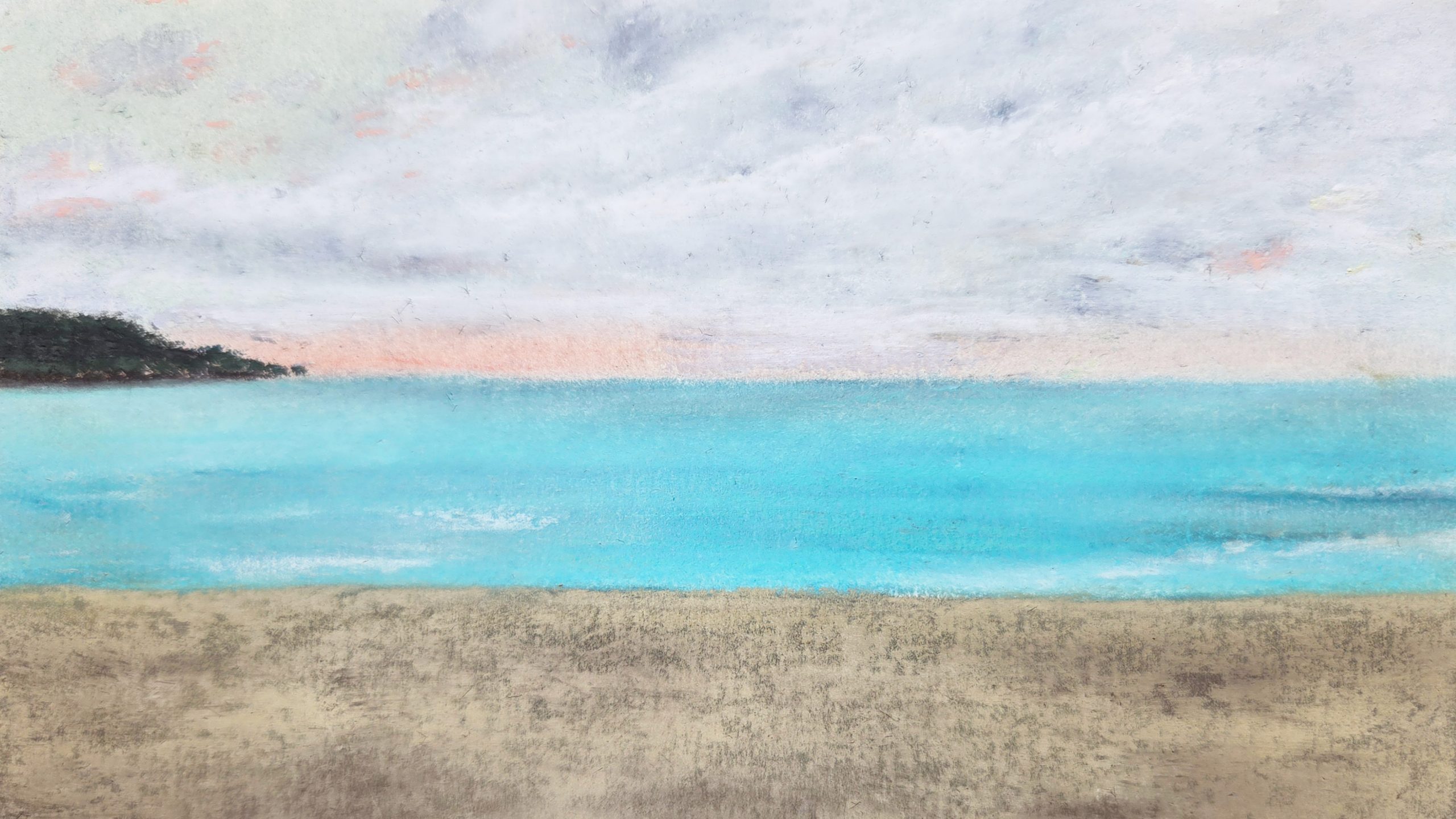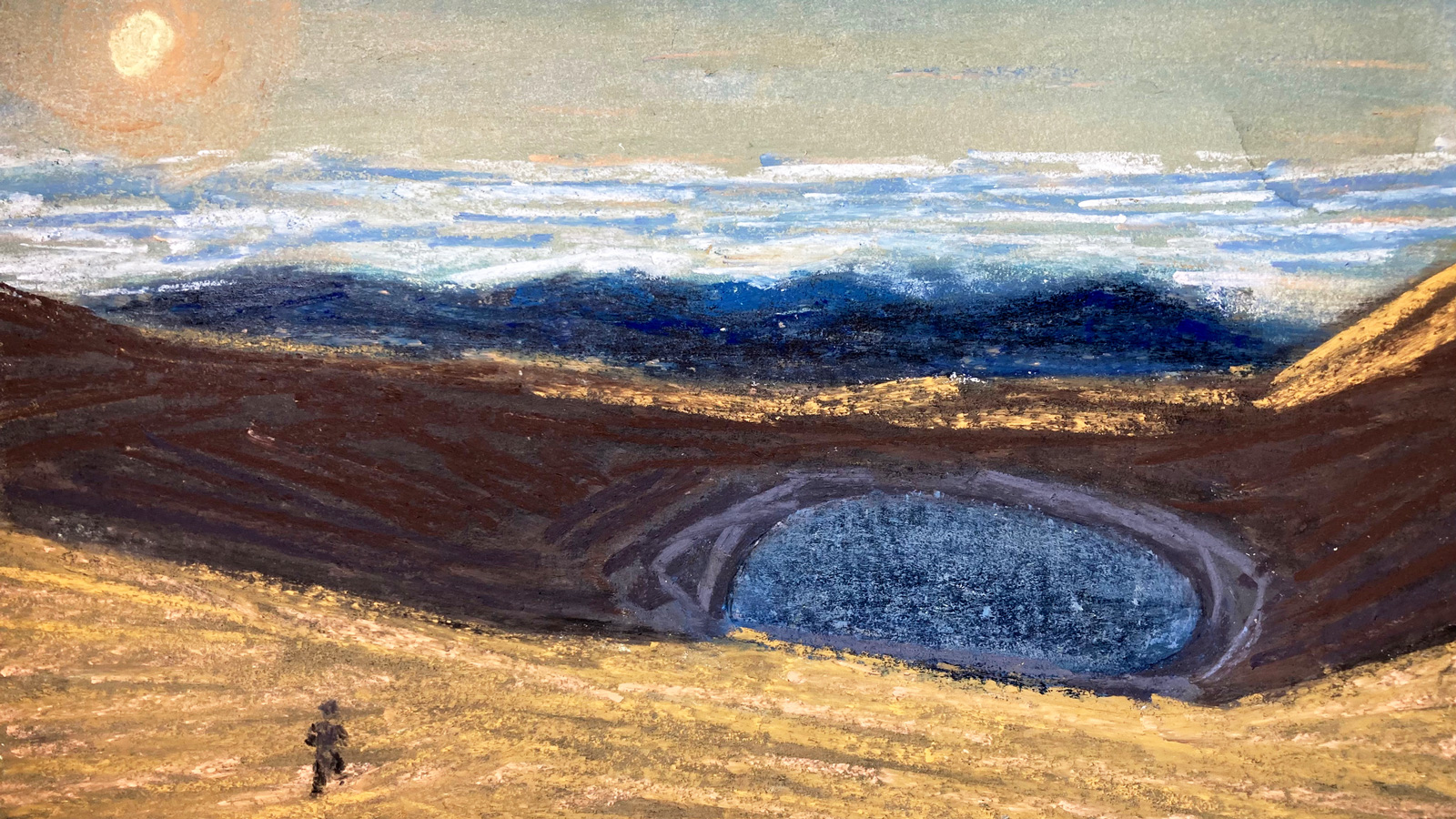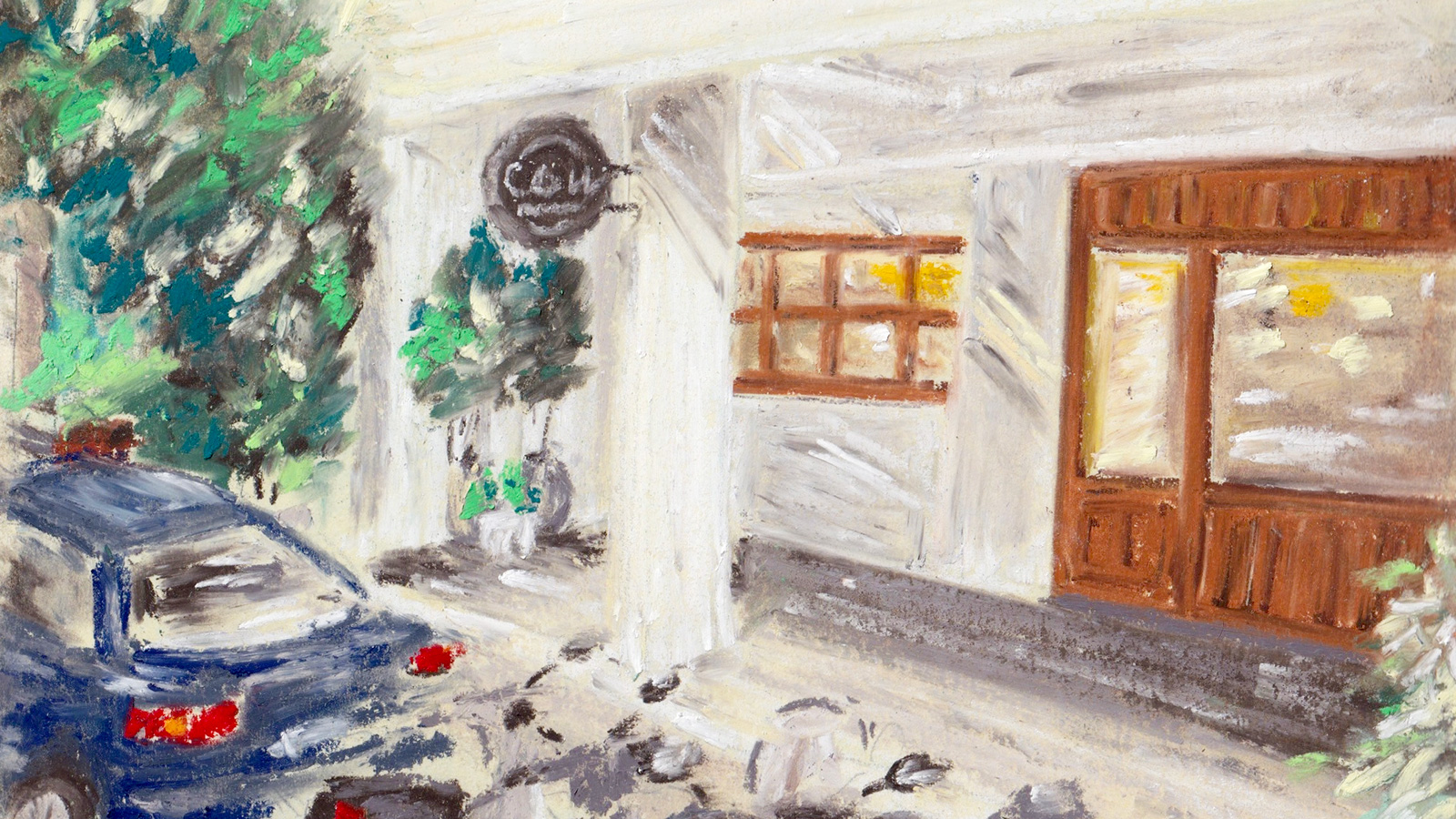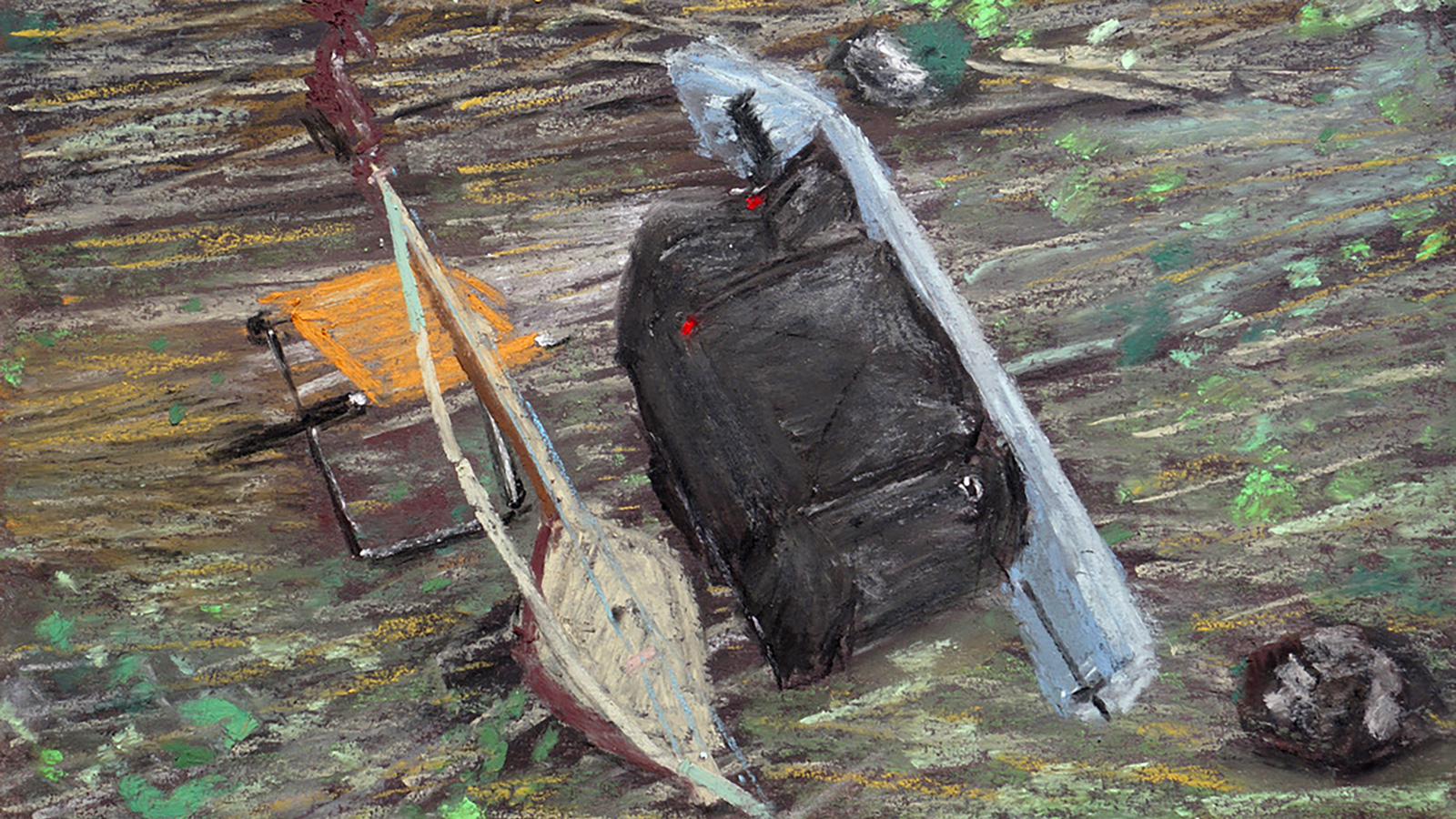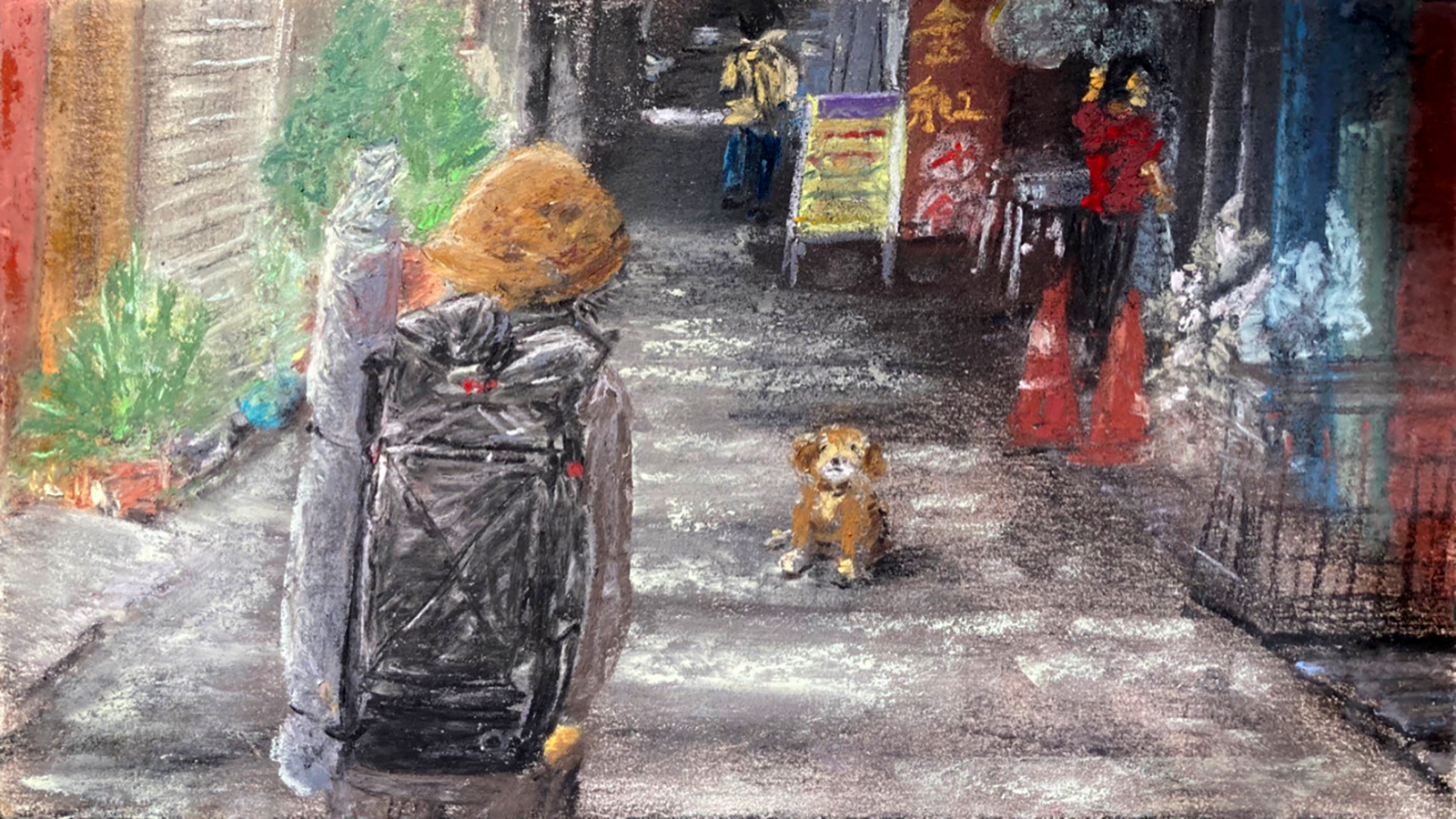#5 Angel’s Teardrop
#5 Angel’s Teardrop
In this piece, Sasa sets out on a hike to Jiaming Lake, one of Taiwan’s premier scenic spots nestled at a lofty 3,310 meters, also known as the "Angel's Teardrop." Passing beyond the tree line into the exposed raw beauty of nature, he gains profound insights. Eventually, he reaches a secret hot spring that he describes as “the best of his life.” And thus, his “Ultralight Backpacking” begins in earnest.
Preparing for my hike
After enjoying a hot pot dinner at Lin’s house in Taitung, I spent the morning before my hike to Jiaming Lake wandering around the town and shopping for food supplies for the hike.
For lunch, I went to my favorite vegetarian restaurant. I’ve become a familiar face there, and I exchanged words in English with the friendly waitress:
“Welcome back! How was the island?”
“You’re going to hike tomorrow, right? Let me know how it went when you come back!”
I love how becoming acquainted with local people like this gives me a sense of blending into the place, as though I’m becoming part of it. At first, the Chinese menus seemed like complete gibberish to me. But after returning to the same restaurant and staring at them over and over again, I’ve finally gotten to the point where I can confidently order the dishes I want. It’s in little triumphs like ordering a meal abroad that I feel myself growing, and those moments give me true fulfillment.

The menu at the vegetarian restaurant in Taitung
According to Lin-san, since it’s currently the off-season, public transportation won’t take me all the way to the trailhead of Jiaming Lake. So I decided to head out today and get as far as I could.
The train departed from Taitung Station, and in less than an hour, I arrived at my intended stop. From there, I caught a local bus that wound its way along steep mountain roads. At 4 PM, I reached a small mountain village—the final stop. As I stepped off the bus, I was met by rain and an unexpected chill in the air.
I had originally planned to hike onward to a natural hot spring and pitch my tent nearby for the night. But in this weather? It just didn’t feel right. I quickly gave up on the idea and decided to find a place to stay in the village instead.
As dusk settled in and the rain continued to fall, I finally found a guesthouse. The owner looked startled to see a Japanese traveler suddenly appear at her door—but to my surprise, the elderly woman spoke fluent Japanese. Though I’d heard that many older Taiwanese still spoke Japanese from the colonial era, I never expected to meet such a person in a quiet mountain village.
Later in my journey across Taiwan, I would meet other elderly locals—even in rural areas—who could speak Japanese. It made me want to learn more about Taiwan’s history, especially how deeply Japanese education permeated the country during the colonial period (1895–1945). It was as though the timeline of my journey extended not just through space, but through time—and with it, the scope of my awareness also expanded.
That night, settled into my room, I poured hot water—kindly offered by the guesthouse kitchen—into a cup of oatmeal I had brought with me. I chopped up a banana and mixed it in for dinner. I never used to eat bananas in Japan, but Taiwanese bananas are so delicious that I’ve taken quite a liking to them.
Even inside the room, the cold persisted. After a hot shower, I crawled into my sleeping bag.
Lying there in the warmth, I whispered to myself,
“If I had camped out in that weather, it would’ve been a disaster.”
Jiaming Lake
The next morning, wrapped in morning mist, I thanked the people at the guesthouse and set off.
After a few rounds of hitchhiking, I finally arrived at the trailhead. When I submitted my hiking permit at the administrative office, the two men at the reception greeted me warmly:
“Oh, we’ve been expecting you—Lin-san told us you’d be coming!”
Their sun-tanned, carefree smiles gave off the unmistakable vibe of seasoned mountain men.

Trailhead map. The goal: Jiaming Lake, marked with a blue circle.
It had started to drizzle as I began the climb, and my heart danced with excitement—it was finally happening: my long-awaited mountain trek in Taiwan. I walked with light steps, observing how the vegetation differed from Japan’s mountains. Before I knew it, I had arrived at Xiangyang Cabin, where I had a reservation for the night.
Wait… it’s not even noon yet.
For now, I took off my backpack, sat on a bench, and enjoyed a cup of tea. Other hikers started arriving one by one, resting and having lunch around the cabin.
Suddenly, I heard someone call out, “Ah, that’s Yamatomichi, right?”
Surprised, I turned around to see a smiling woman pointing at my backpack.
“I love Yamatomichi gear too!” she said, showing me her own backpack and other items from the brand.

She was using the Yamatomichi ONE backpack. She told me she had bought it at Yamatomichi Kamakura during a hiking trip to Japan. It seems that many Taiwanese hikers also enjoy hiking in Japan. I didn’t notice at the time, but looking at the photos later, I realized she was also wearing the UL All-weather Jacket and the Alpha Anorak.
She invited me to join her group for tea, and I gladly accepted both the invitation and the snacks they generously shared.
It amazed me—just carrying Yamatomichi gear was enough to make friends. Perhaps this sense of connection stems from the brand’s strong identity and the shared values among its users. I’ve never had such a spontaneous connection from gear alone.
After a while, the group packed up and continued toward the upper cabin.
“Huh, they’re not staying here tonight?” I thought. Before long, all the groups had left, and I found myself completely alone. A strange loneliness crept in. The sweat from my hike cooled, and I started to feel the cold.
“It’s only noon…”
The empty afternoon stretched before me, and I didn’t quite know what to do with myself.
I asked the cabin manager if I could change my reservation to the upper cabin for tonight. He checked the list and said, “There’s space up there. You’re good to go—I’ll call ahead and let them know.”
Perfect. That meant I could spend the afternoon hiking instead of sitting around, and my mood lifted instantly.
The sky began to clear, and I continued upward in high spirits. I even took out my notebook and pen to sketch during a break. Walking in nature always inspires me to draw. More precisely, I sketch as a way to align myself with the landscape—a meditative practice to quiet the mind. In that deep state of awareness, I find myself searching for something.



Beyond the treeline, an unfamiliar world unfolded—breathtaking and unlike anything in daily life. I was drawn to the way frost clung to only one side of the branches, imagining steady winds always blowing from the same direction. The plants’ ability to endure such conditions made me reflect on their quiet strength and the deeper mystery of life’s resilience.
Just before evening, I arrived at Jiaming Lake Cabin (3,347 meters).
A large young man in a red jacket greeted me at the entrance.
“Ah, it’s you! We got the message from the lower cabin. Lin-san also says hello! I’m Aku—nice to meet you.”
He smiled warmly and offered a firm handshake.
There’s something universally heartening about the smiles of mountain people.
Dinner that night was filled with friendly conversation. It’s such a joy to have people to talk to, even in the mountains. After dinner cleanup, it was just past 7 PM. Following the lead of the other hikers, I climbed into my sleeping bag for the night.

The women serving buffet dinner into our cookpots.
A growing sense of fulfillment
Mornings in the mountain huts come early. Even though it was still before 3 a.m., the rustling sounds of others getting ready began to stir me from sleep. I had been told, “Breakfast is at 4,” so until then, I stayed wrapped in my sleeping bag, practicing my daily meditation and before I knew it, it was time for breakfast.
I step into the kitchen—
the fire is already lit.
A bowl of warm soup in hand,
my body, stiff from the night,
begins to soften.
Now—time to go.
Outside, it’s still dark;
my headlamp lights the trail.
Above, stars are shining.
Yesterday’s rain has passed—
the sky is clear.
I walk toward the stars,
aiming to greet the sunrise
from the mountain’s peak.
Above the treeline, nothing blocked the view. Far ahead, I could see the lights of earlier hikers, their headlamps drawing a faint, dotted line along the mountainside. Even the smallest of lights shines brilliantly in the darkness.
This morning, my body moves well. Yesterday, on the first day of the hike, I found myself breathless in the high altitude. But now, that strain feels good—like a welcome challenge. Perhaps spending the night up here helped me acclimate.
As I walk through the thin air, I sense that the stimulation reaches deep into blood vessels and cells I rarely feel. It’s as if they’re awakening. In that process of cellular awakening, I feel like I’m also encountering a deeper version of myself.
Mountains are places where one meets oneself.
Finally, I reached the summit of Mt. Sancha, just before Jiaming Lake, and waited for the sunrise.


The sky shifts—
from the darkness of night
to deep indigo,
and then to crimson.
Suddenly, a single ray of light cuts through the sea of clouds.
The light pierces straight through—
through my eyes,
illuminating the depths of my heart.
In that moment,
my very self feels washed clean
by this radiant light.
As I soaked in this growing sense of fulfillment, a thought came to me: this phenomenon—this sunrise, this miracle—happens every single day on Earth. Even when I’m fast asleep in my own bed, lost in dreams, the sun still rises, and somewhere, this breathtaking scene unfolds.
Touched by the grandeur of nature, I was reminded of the quiet miracle of each day.
At the same time, I became aware of how far removed my usual awareness often is from that reality.
The heavy breathing as I climbed, the long night spent in the mountains, the quiet moments watching the sunrise, and the stillness of being bathed in its light—all of it filled me with a deep clarity. A gentle humility began to spread within me.
It felt as though the act of climbing the mountain was tuning the frequencies of my being,
which had been scattered and out of sync in everyday life.
And now, I consciously hold onto this entire physical and emotional experience.
I imprint it deeply into memory—as if sketching a scene in tune with the landscape, watching it slowly emerge onto the page.
This memory, preserved with awareness, will remain with me even after I return to daily life—a place within myself I can return to, a steady and certain point of grounding.

With the sun now fully risen, I made my way down to Jiaming Lake. There, I saw the familiar faces from the mountain hut—their eyes sparkling with joy, their expressions lit up by the beauty of the lake before them.
Seeing such pure, unguarded human emotion stirred something in me.
It felt as if my heart, once again, had been cleansed.
Perhaps it was because I sensed that within each person—just like in nature itself—there lies a wellspring of purity.
In the mountains, we encounter many beautiful landscapes. And sometimes, among them, we find the beauty of people as part of that landscape too.


It seemed that most people were on a two-day, one-night itinerary. After watching the sunrise, they quickly began their descent. In the distance, I spotted the group who had kindly welcomed me yesterday. They had mentioned they’d be heading down today too.
I waved and called out loudly—but my voice didn’t reach them.
I had wanted to say goodbye properly, and to thank them once more…
Now, I was alone by the lake.
Since I was staying another night at the same mountain hut, time was abundant. I decided to wander freely—around the lake, around the ridgelines above—letting my senses guide me.
Though I was surrounded by nature, there was something stark and inorganic about the landscape at times. With no other people around, I began to feel the boundaries of “self” blur. What defines me, when I’m the only living presence here?
And yet—whenever I came across a bird or an animal, I felt a quiet reverence for that encounter. It made me aware of how deeply I cherish even the smallest signs of life.

Content with my time at the summit, I made my way back to the mountain hut.
The afternoon stretched before me, open and unhurried—a rare kind of richness in having absolutely nothing scheduled.
I spent it on the terrace, immersed in a book. I couldn’t remember the last time I read this slowly, this fully—with nowhere to be, and no clock to check.
Looking outward, turning Inward
After dinner at the mountain hut, I joined two Taiwanese women staying that night for a rescue training session led by Aku, held in the caretaker’s room.
Apparently, it’s an initiative by Lin-san, the hut’s lead manager, who believes that offering such lessons—free of charge—helps hikers deepen their understanding of the mountains.
Learning about the mountains in the mountains made it all feel so much more real.
We also bonded with each other during the session, which made the experience even more meaningful.
I truly admired Lin-san’s commitment to nurturing a responsible mountain culture.
After the lesson, I stayed back for a while, casually chatting with Aku while munching on sunflower seeds. As we were parting ways, he said,
“I’m not like other hikers—I don’t get up that early. So you might not see me in the morning. Be careful on your descent.”
I laughed and said, “No worries. I’ll come knock on your door and wake you up.”
He grinned with a tired smile, “Please don’t—I want to sleep.”
Once again this morning,
I set off into the stillness of darkness.
Above me—
a sky scattered with countless stars.
I walk beneath the universe.
This morning, I aimed to see the sunrise from the summit of Mt. Xiangyang on my way down.
As usual, I felt great in the high mountains—light, strong, energized. I’ve grown to love this sensation of moving through thin air. I walk well, I sleep deeply, I feel alive.
It’s healthy in the truest sense of the word.
Meals in the mountains are simple and limited, and I naturally end up eating only until I’m about 80% full. Despite how much energy I’m using out here, I don’t feel depleted. On the contrary—eating less seems to unlock more of my body’s potential.
I feel stronger, sharper, lighter.
It makes me think: In daily life, am I simply eating too much?
Perhaps there’s a cost to that excess—a dulling of the senses, a distancing from vitality. Stepping away from routine by climbing into the mountains offers me a mirror. It lets me reflect on the small, habitual choices that shape daily life.
In the pre-dawn darkness, I walked briskly with my headlamp lighting each step. I reached the summit in time for sunrise—in fact, I arrived far too early, thanks to my unusually good pace.
And so I stood there, waiting in the cold wind for the light to come.
Since I was already still, I found a spot behind a rock to shelter from the wind, sat down, and began to sketch.
There’s something I absolutely love about this feeling: looking out at the landscape, and at the same time, turning quietly inward.

After a little while, the two women I had joined for yesterday’s rescue training arrived at the summit. I was glad—they made it just in time for the sunrise.
Both of them were glowing, their faces shining as brightly as the morning sun itself.
Just like at Jiaming Lake the day before, I found myself deeply moved by the sight of people standing before nature in such a pure, unguarded state.
Moments like this nourish something within me—
a quiet sustenance for the heart.


The two of them sat down right in front of me—
well, of course they did; it was the best spot for the view, after all.
So I ended up including their backs in my sketch.
It felt natural, as if they were part of the landscape in that moment.
Later, I showed them the drawing. They were delighted—truly happy to see it.
That small connection, shared through pencil lines and quiet observation,
was another gift from the mountain.

Two girls snapped a photo of me while I was sketching. Since I had no idea they were taking it, the picture feels like a rare glimpse of my natural self.
The best hot spring of my life
By late morning, I was back at the trailhead, and my thoughts turned to the riverside hot spring I had noticed on the way up — the one I couldn’t get out of my mind. I decided to head there, set up camp, and spend the night soaking in its waters to ease my body after the climb.
The two women I had met earlier offered to drive me to the turnoff for the spring.
As we parted, they handed me a bag of snacks and a pack of instant noodles.
“My food’s almost gone,” I thought gratefully, taking their gift with deep appreciation.
Taiwanese people are so kind. Again and again on this journey, I encountered generosity that truly moved me. Their thoughtfulness isn’t just a feeling—it becomes action, effortlessly.
Where does this come from?
What kind of homes, what kind of education fosters this natural compassion?
I left the paved road, walked through cabbage fields, then began a steep descent through the mountains toward the spring. It seemed to be far down in the valley by the river.
The trail was much steeper than I expected. I passed people coming up from the river—
faces pale, gasping for breath. Clearly, this was no easy stroll.
To be honest, I had envisioned a soothing soak after a hard hike, not another intense mountain trek. I couldn’t help but think how grateful I was that I hadn’t tried to get here the other night in the rain, when I first arrived in the village. I felt a quiet pride in having made that decision. Sometimes choosing not to press forward is growth.
I had relied on Google Maps to estimate the distance, but it had been wildly inaccurate. Walking through mountains is nothing like walking city streets. From that moment on, I decided to switch to Maps.me, which Aku had recommended. And it turned out to be the perfect companion for the rest of my journey—accurate routes, realistic times, and great offline navigation.
Eventually, clinging to ropes as I climbed down nearly vertical rock,
I finally reached the riverbed. Completely exhausted.
It was already late afternoon. I looked up at the summit I had stood on that morning—now far above me—and felt a wave of emotion. I had been moving since 4 a.m., so no wonder I was worn out. What I had imagined as a “quick stop at a hot spring after hiking” was in fact an epic mission of its own.
But waiting there for me—was a hot spring beyond imagination.
At first, I couldn’t find anything. I stood at the river’s edge, searching for signs of warm water, but saw nothing. Then, I noticed a rope stretched across the river. It had clearly been placed there for a reason.
So I took off my shoes, grabbed the rope, and carefully crossed to the other side.
Further on, I spotted a green rock face—and rising steam.
Yes. That’s the hot spring!

It turned out that the hot spring was the waterfall—a stream of steaming water tumbling down the green-stained rock face. I touched the pool at the base of the fall, which had formed a natural tub. The water was piping hot. To adjust the temperature, I diverted cold river water into it.
The pool was shallow, just deep enough for me to lie flat beneath the surface and fully submerge.
But the location—absolutely breathtaking. I couldn’t help but groan aloud,
“This… this is the best hot spring of my life.”
Whenever I got too hot in the waterfall basin, I’d plunge into the icy river beside it, then slip back into the hot water again. Back and forth—hot, cold, hot, cold—until all my fatigue melted away.
As the sun began to set and I found myself completely alone, I stayed just as I was—naked.
Barefoot and unclothed, I moved through the water and over the rocks, feeling the raw texture of the earth beneath me.
And then it hit me: “Ah… this feeling—this is what I remember.”
A memory came rushing back—of when I traveled through Central America on horseback in my twenties. The sensation of throwing my body straight into the heart of the wild.
I remembered thinking, “Looking back now, how did I spend a whole year traveling like that?
Camping every single night with a horse, seeking out wild places to sleep…It was incredible.”
That same feeling returned to me—a kind of opening, a surrendering to nature.
(Perhaps, paradoxically, what we call “opening” is actually our natural state—
it’s just that everyday life tends to close it off.)
To be honest, this depth of sensation—this level of immersion—was something I hadn’t quite reached during the three days of mountain trekking.
Why?
Because even in the mountains, there are still people. We walk prescribed trails, maintained by human hands. We follow rules and schedules, and remain partially restrained—aware of ourselves as social beings.
But that earlier journey on horseback, and now this moment by the river—they both reflected something else:
A way of being where I find my own place by instinct—choosing where to pitch my tent, shaping the space with my hands, cultivating harmony between myself and the land.
When I move through nature like that—guided by pure intuition—the relationship between myself and the natural world feels completely different from following a planned route or staying in a booked mountain hut.

Tonight’s lodge with a hot spring. The hot spring waterfall is just across the river in the back left of the photo. I’ve also visited a few open-air baths like this in Taiwan, though rarely in such a dramatic location. Taiwan has hot springs all over, and they’re wonderful.
Gathered firewood, lit the flames.
Drew water, cooked dinner, filled my belly.
Surrounded by the sound of the river,
the sound of the stars—
I played the kalimba.
Then lay down
on a bed of river sand.
After finishing the mountain trek, I returned to the city of Taitung— a place that now felt like a hometown, familiar and welcoming.
In just two weeks since arriving in Taiwan, I had traveled to islands, climbed mountains, camped under the stars, hitched rides, and walked countless roads. I had encountered so many kind, generous locals.
Little by little, a personal map of this new land has begun to take shape inside me.
Yes—it seems I’m finally ready for the walking journey ahead.
As I look at the map of the long-distance walking route Ruth shared with me, I feel not worry, but excitement. That feeling is proof enough.
At last, it’s time to begin—my walk across Taiwan begins now.
To be continued..

Born in Tokyo in 1979, Takaya Sasa has traveled through more than 60 countries, learning from life on the road—whether through cooking, music, shoemaking, or other crafts.
In 2013, he relocated to the banks of the Shimanto River in Kochi Prefecture, Japan, where he began building a lifestyle rooted in the land.
In 2016, he published The Salad Book (ささたくや サラダの本), a collection of raw food recipes and travel essays. He began creating pastel artwork in the summer of 2020, and in 2023, he self-published two books: TABI no Ohanashi-kai, a collection of travel stories, and Kurashi no Kage, a visual diary of daily life along the Shimanto.







